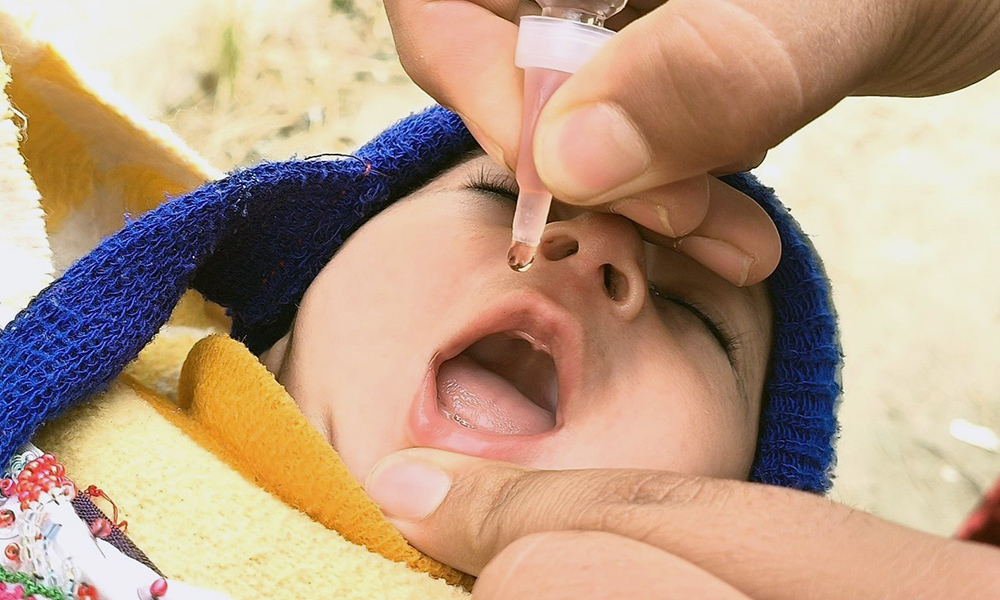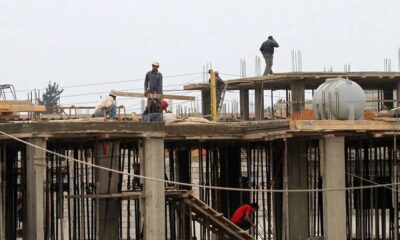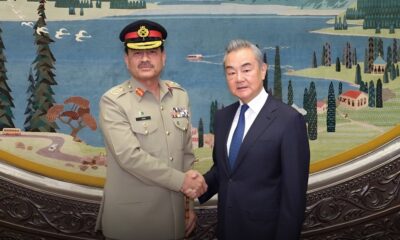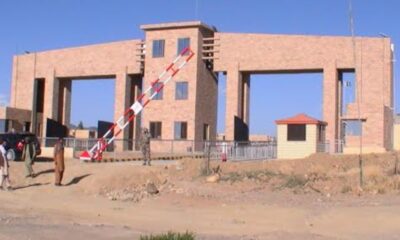Health
WHO warns lack of mental health services in Afghanistan is alarming
WHO attributed the current state of mental health services in Afghanistan to years of conflict, economic hardship, and widespread psychological stress.

The World Health Organization (WHO) has expressed deep concern over the absence of mental health services in provincial hospitals across Afghanistan, despite a critical need among the population.
The organization reports that all 34 provincial hospitals in the country currently lack specialized mental health facilities.
In a statement, WHO attributed the current state of mental health services in Afghanistan to years of conflict, economic hardship, and widespread psychological stress.
With financial support from the European Union, WHO has launched a program aimed at improving mental health and providing social support across the country.
This initiative focuses particularly on vulnerable populations and is being implemented through the hospital network.
To address the severe shortage of specialized mental health services, WHO has initiated a pilot project that integrates inpatient wards for the treatment of severe mental health disorders into selected provincial hospitals.
As part of this effort, inpatient facilities with a capacity of eight beds have been established in the provinces of Bamyan, Badakhshan, Farah, and Nimroz. Additionally, a larger 20-bed center has been launched at the Aino Mina Hospital in Kandahar province.
WHO emphasized that the goal of these centers is not only to treat psychological symptoms, but also to support patients in rebuilding their lives, restoring family relationships, and reintegrating into society.
Nevertheless, the organization has expressed concern about the uncertain future of the program.
It warned that the expansion and sustainability of these services are essential to meet the growing mental health needs of the Afghan population.
Health
WHO warns Afghanistan remains a hotspot for polio
The virus’s persistence in the region coupled with new detections in previously unaffected areas, has prompted concern over immunization gaps.

The World Health Organization (WHO) has raised alarm over the ongoing transmission of wild poliovirus type 1 (WPV1) in southern Afghanistan, warning that the region remains a major hotspot for the virus and poses a threat to global eradication goals.
In a new report issued after the 42nd meeting of the Polio IHR Emergency Committee, WHO confirmed that Afghanistan has reported one new WPV1 case and 30 positive environmental samples in 2025 so far.
While this marks a decline from 2024’s 25 cases, the virus’s persistence in the region coupled with new detections in previously unaffected areas, has prompted concern over immunization gaps.
The Committee noted that transmission in Afghanistan remains most intense in the southern cross-border corridor shared with Pakistan, particularly the Quetta Block and Helmand province. Meanwhile, the east region has shown improved immunity, with a decline in new detections.
Afghanistan has conducted two nationwide and two sub-national vaccination rounds this year, using a site-to-site strategy instead of traditional house-to-house campaigns, WHO reported.
The organization expressed concern that the current strategy fails to consistently reach all children—especially girls and the youngest—raising the risk of continued virus spread.
Ongoing population displacement, especially the return of undocumented Afghan migrants from Pakistan, is compounding the challenge, WHO stated adding that many returnees come from areas with low vaccination coverage.
WHO praised ongoing coordination between Afghan and Pakistani health officials and international partners, including vaccination at border crossings.
Globally, WPV1 remains endemic only in Afghanistan and Pakistan, but the risk of international spread persists, fueled by poor immunization, insecurity, and mobile populations.
Health
Afghanistan to launch nationwide polio vaccination campaign to protect children
The campaign will be carried out across multiple provinces and districts, and includes the administration of Vitamin A supplements alongside oral polio vaccines.

Afghanistan has launched a new nationwide polio vaccination campaign aimed at immunizing children under the age of five against the debilitating disease, the Afghanistan Polio-Free Organization announced Sunday.
The campaign, which began on July 20, will be carried out across multiple provinces and districts, and includes the administration of Vitamin A supplements alongside oral polio vaccines.
Health officials say the initiative is designed not only to prevent the spread of polio but also to strengthen children’s immune systems and improve overall child health.
“The campaign aims to protect children under the age of five from the debilitating effects of polio,” the organization stated, urging families to cooperate fully with health workers to ensure that no child is left behind.
Polio is a highly infectious viral disease that primarily affects children and is transmitted through contaminated water. Early symptoms include fever, fatigue, headache, vomiting, and limb pain. In severe cases—approximately one in every 200 infections—the disease can result in irreversible paralysis.
Afghanistan remains one of only two countries in the world, alongside Pakistan, where wild poliovirus transmission has yet to be eliminated. Health officials view continued vaccination campaigns as vital to eradicating the virus and preventing lifelong disability among Afghan children.
“These vaccination campaigns represent a significant step toward a polio-free future for the country,” the Polio-Free Organization emphasized, highlighting the need for sustained public engagement and full community participation.
International partners have also stepped in to support Afghanistan’s eradication efforts. Japan, in partnership with UNICEF and the Japan International Cooperation Agency (JICA), has contributed $5 million to bolster immunization programs across all 34 Afghan provinces. The funding will support a 12-month initiative aimed at reaching more than 13 million children with polio and routine childhood vaccines.
UNICEF, in a statement released on July 10, praised the Japanese government’s commitment to Afghanistan’s health sector. “This new grant reaffirms Japan’s longstanding support for the global effort to eradicate polio, especially in underserved, conflict-affected, and hard-to-reach areas,” the agency said.
Despite recent progress in reducing under-five and maternal mortality, access to basic healthcare remains limited in much of Afghanistan, leaving millions of children exposed to preventable diseases. A resurgence of polio cases in 2023 exposed significant immunity gaps, particularly among children in mobile, cross-border, and previously inaccessible communities.
While cold chain infrastructure and vaccine delivery systems have improved, health authorities warn that continued vigilance and urgent action are needed to reach every child and close remaining coverage gaps.
“Polio vaccination is one of the most effective ways to ensure a healthier, brighter future for Afghan children,” the Polio-Free Organization said, calling for collective efforts to achieve a polio-free Afghanistan.
Health
Bangladesh’s Indo-Bangla Pharmaceuticals to begin exporting medicines to Afghanistan

In a move seen as a potential boost to Afghanistan’s fragile healthcare system, Bangladesh-based Indo-Bangla Pharmaceuticals has announced plans to begin exporting medicines to Afghanistan.
The decision comes as part of a long-term partnership with Afghan firm Salar Yousafzai Pharmaceuticals, which will act as the company’s exclusive distribution agent in the country.
According to Bangladesh media, Indo-Bangla’s board of directors has approved the signing of a memorandum of understanding (MoU) with Salar Yousafzai Pharmaceuticals for the export of pharmaceutical products.
The MoU will be valid for 15 years, from 2025 to 2040, and may be extended by mutual agreement.
While no details were immediately available regarding the types or volume of medicines to be exported, the deal underscores growing regional cooperation in a context where Afghanistan’s access to quality healthcare remains critically constrained.
Afghanistan’s pharmaceutical system has endured significant setbacks in recent years, fueled by economic sanctions, the collapse of donor-funded health programs, and international disengagement following the Islamic Emirate’s return to power in August 2021.
The country imports over 90% of its medicines, primarily from Pakistan, India, Iran, and China, making its supply chain highly vulnerable to external shocks.
The withdrawal of aid and the departure of international NGOs have triggered drug shortages, price spikes, and the shutdown of many pharmacies, especially in underserved rural areas.
As such, the entry of a licensed, quality-assured foreign supplier like Indo-Bangla Pharmaceuticals may help stabilize medicine availability, particularly if the partnership ensures adherence to international standards and proper oversight through its Afghan counterpart.
This development comes amid ongoing calls by Afghan health officials for renewed international partnerships to revive the country’s healthcare infrastructure and ensure the supply of affordable, essential medicines.
In April 2025, Afghanistan’s Acting Health Minister, Mawlawi Noor Jalal Jalali, discussed with Uzbekistan’s ambassador the need to import high-quality medicines and emphasized the importance of regulating all imports to ensure public safety.
In late 2024, Jalali met with representatives from the World Health Organization (WHO), World Bank, UNFPA, UNICEF, and other agencies to stress the urgency of mobilizing international aid and securing stable pharmaceutical supply chains.
In August 2024, the Ministry of Public Health hosted 14 international organizations for a coordinated discussion on improving service delivery and securing external assistance for Afghanistan’s health system.
These repeated appeals highlight the Afghan government’s strategic focus on expanding international health collaborations, despite political and logistical challenges.
-

 Latest News4 days ago
Latest News4 days agoOver 96,000 overflights crossed Afghanistan’s airspace in past year
-

 Latest News4 days ago
Latest News4 days agoDeparture of Afghan workers disrupts Iran’s construction industry
-

 Regional5 days ago
Regional5 days agoChina’s foreign minister meets Pakistan army chief, urges protection for nationals
-

 Latest News4 days ago
Latest News4 days agoRawalpindi police ordered to detain undocumented Afghan nationals
-

 World5 days ago
World5 days agoNetanyahu, Trump appear to abandon Gaza ceasefire negotiations with Hamas
-

 Latest News4 days ago
Latest News4 days agoChinese, Pakistani officials hold talks on Afghan security threat
-

 Latest News2 days ago
Latest News2 days agoPakistan, Afghanistan agree to reopen Angoor Adda crossing to boost trade
-

 Latest News4 days ago
Latest News4 days agoAfghan envoy meets Belarusian ambassador in Ashgabat to discuss bilateral cooperation
























